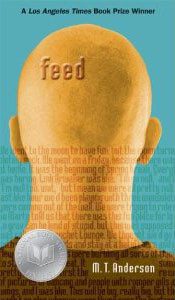Unplugging
Last weekend I attended nErDcampLI, a gathering on Long Island of authors and educators to celebrate books and discuss ways of presenting them to students. Before the pandemic I attended this event in person, and this year’s incarnation was its first year in person since 2020. I’m a big fan of these informal gatherings, meant to spark dialogue rather than authors simply promoting their work. For two years in a row I was part of a panel for the online nErDcampPA, talking about using books to raise awareness and understanding of neurodiversity.
I hadn’t intended to lead a session or present as part of a panel, but I immediately ran into my good friend Sarah Darer Littman, who invited me to join her for a session titled “Ripped from the Headlines” focusing on books that connect with current events. Sarah is a former IT specialist who writes fiction that explores the role of technology and social media in the lives of teens. Among her books are Backlash, about body image and cyberbullying, In Case You Missed It, about cybercrime and security, and Deepfake. Her most recent book is Some Kind of Hate, told from the points of view of a baseball star sidelined by a serious elbow injury who’s lured into a Christian nationalist militia and his Jewish best friend who his fellow militia members want him to target. Some Kind of Hate is a gripping, harrowing thriller as extremist ideologies turn Declan into someone his friends and family no longer recognize. Sarah spent years researching this book, including interviews with former neo-Nazis who described to this Jewish author how they were pulled into a hate group and what it took for them to leave it behind.
 The dangerous technology at the center of all Sarah’s books didn’t exist in the timeframe of my historical novels, as I explained to the attendees; however the totalitarian regimes I depicted in Eyes Open, Torch, and Gringolandia used the technology of their time to persecute their enemies. Technology has enriched our lives, but it has also served as a tool of repression and for many teens (and adults) today, a destroyer of self-esteem, personal relationships, and community ties. A lot of our discussion, therefore, was about unplugging — keeping kids safe at a time of ever intrusive technology.
The dangerous technology at the center of all Sarah’s books didn’t exist in the timeframe of my historical novels, as I explained to the attendees; however the totalitarian regimes I depicted in Eyes Open, Torch, and Gringolandia used the technology of their time to persecute their enemies. Technology has enriched our lives, but it has also served as a tool of repression and for many teens (and adults) today, a destroyer of self-esteem, personal relationships, and community ties. A lot of our discussion, therefore, was about unplugging — keeping kids safe at a time of ever intrusive technology.
Parents and teachers talked about creating technology-free zones for much of the day. We discussed ways of educating children about the dangers of surveillance, cyberbullying, data security, and online recruitment for sex and violent extremism. Forewarned is forearmed. If a post on social media can be screenshotted, it never really disappears. It’s also important for people young and older to understand that people on social media feel free to say things anonymously that they would never say to someone in person, a fact that contributes to both incivility and criminality. Don’t be that person. In my own social media engagement, I always ask myself, “Is this something I’d feel comfortable saying directly to an individual or group?” The fact that my social media presence and blog posts are often intertwined is my response to that question.
 Teenagers often try to rebel against their elders, and unplugging from social media can serve as that kind of rebellion or resistance. (The latter is certainly the case in a pivotal scene in Torch.) The principal goal of social media is to sell products. Data from online activity ends up in the hands of marketers, who place carefully selected solicitations. I keep thinking of M.T. Anderson’s classic novel Feed, which has turned out to be ahead of its time and even more relevant today. Along with Some Kind of Hate, Feed is the book I’m recommending for your TBR pile and, if you’re an educator, for your classroom.
Teenagers often try to rebel against their elders, and unplugging from social media can serve as that kind of rebellion or resistance. (The latter is certainly the case in a pivotal scene in Torch.) The principal goal of social media is to sell products. Data from online activity ends up in the hands of marketers, who place carefully selected solicitations. I keep thinking of M.T. Anderson’s classic novel Feed, which has turned out to be ahead of its time and even more relevant today. Along with Some Kind of Hate, Feed is the book I’m recommending for your TBR pile and, if you’re an educator, for your classroom.
In discussing online safety for young people, the need to protect one’s digital footprint is increasingly important. It isn’t just the school bullies. Teens often don’t realize that colleges and employers look online for information about applicants. Undemocratic governments use digital footprints to target opponents. Scammers track their potential targets online, and personal information can be used to impersonate and defraud. For more information on how to guard one’s digital footprint, check out this simple guide for teens from the University of Maryland and more detail here.








How cool that you were able to participate with Sarah in the discussion, Lyn.
Yes, protecting one’s digital footprint is very important.